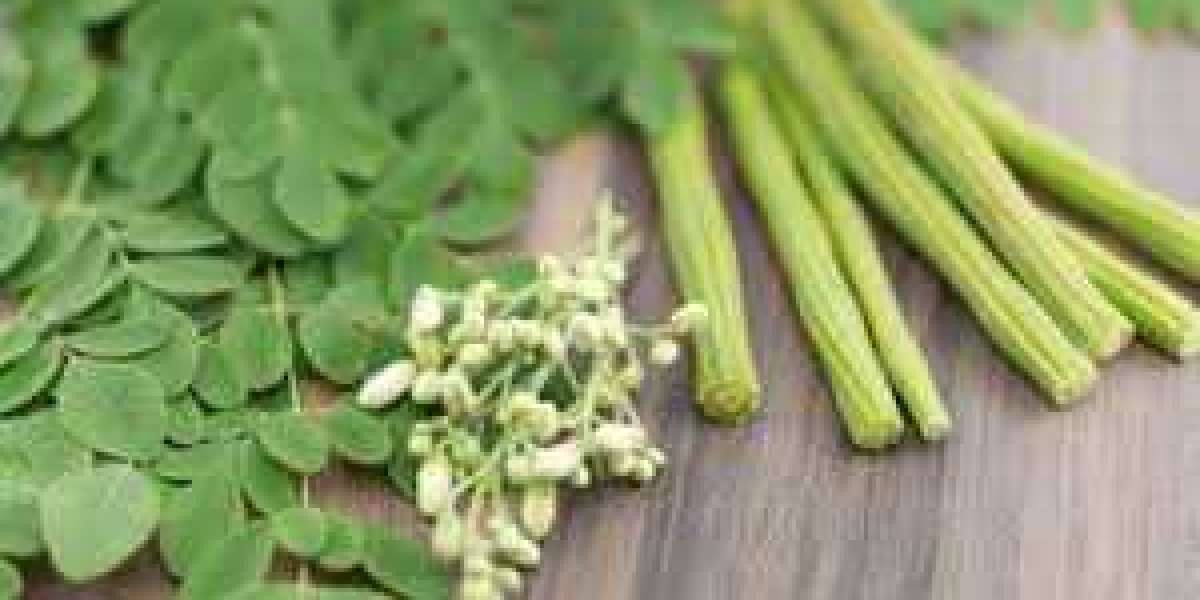1. Nutritional Powerhouse
Moringa leaves are densely packed with essential vitamins and minerals. Just a small serving offers:
7 times more vitamin C than oranges
4 times more calcium than milk
3 times more potassium than bananas
Twice the protein of yogurt
They also contain iron, magnesium, vitamin A, B vitamins, and essential amino acids, making them one of the most complete plant-based sources of nutrition.
2. Rich in Antioxidants
Moringa leaves are loaded with powerful antioxidants like quercetin, chlorogenic acid, and beta-carotene, which help:
Protect cells from oxidative damage
Reduce inflammation
Slow down aging
Strengthen the immune system
Regular consumption of moringa can help fight free radicals and reduce the risk of chronic diseases such as cancer and heart disease.
3. Supports Immune System and Detoxification
Due to its high vitamin C, iron, and phytonutrient content, moringa is a natural immune booster. It helps the body fight infections, improve healing, and flush out toxins. Moringa is also known for supporting liver health, which is crucial for natural detoxification.
4. Helps Balance Blood Sugar and Cholesterol
Studies show that moringa leaves can aid in managing blood sugar levels and reducing bad cholesterol (LDL), making them beneficial for individuals with diabetes or those looking to support heart health naturally. The presence of isothiocyanates and plant sterols contributes to this effect.
5. Promotes Healthy Skin and Hair
The high levels of vitamin E, vitamin A, and antioxidants in moringa leaves help improve skin texture, reduce signs of aging, and strengthen hair follicles. They’re increasingly found in natural beauty products, but consuming them directly provides deep nourishment from within.
6. Natural Anti-Inflammatory and Pain Reliever
Moringa leaves possess strong anti-inflammatory properties that can help relieve joint pain, swelling, and symptoms of conditions like arthritis. The leaves contain compounds that inhibit enzymes responsible for inflammation, offering a natural alternative to over-the-counter pain relief.
7. How to Use Moringa Leaves
Moringa leaves can be consumed in various ways:
Fresh leaves: Added to salads, stir-fries, or soups
Dried leaves: Used to brew tea or as a seasoning
Moringa powder: Mixed into smoothies, yogurts, or baked goods
Capsules and extracts: For convenient supplementation
They have a mild, earthy flavor that complements both sweet and savory dishes.
8. Sustainability and Global Impact
Moringa is not just good for the body—it's also good for the planet. The tree grows quickly, requires minimal water, and thrives in poor soil, making it an ideal crop in regions prone to drought and food scarcity. It’s increasingly being used in malnutrition programs around the world due to its exceptional nutrient density.
Conclusion
Moringa leaves are a true gift from nature, offering a wide range of benefits for the mind, body, and planet. Whether you're looking to boost your energy, support your immune system, enhance skin health, or simply improve your overall nutrition, moringa leaves are a powerful, natural solution worth adding to your daily routine.











